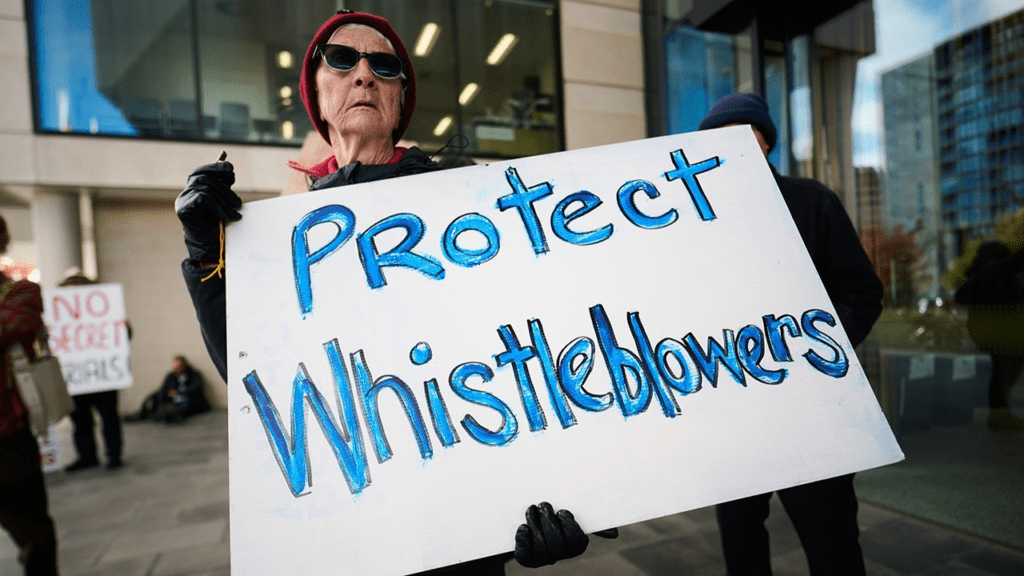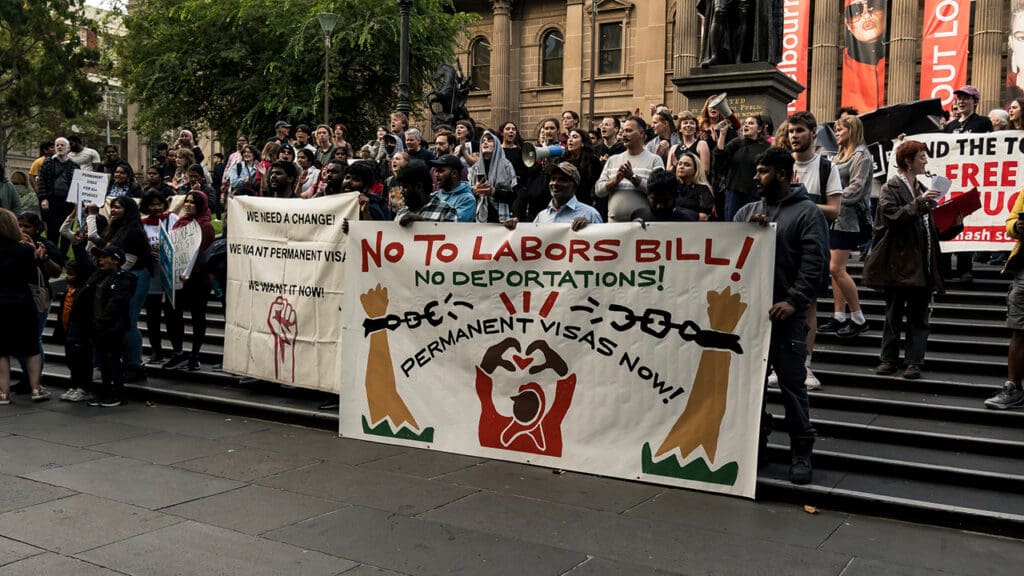High Court asked to review dangerous and unfair alcohol laws in the NT
The Human Rights Law Centre has today asked the High Court to review a decision by the Northern Territory Court of Appeal regarding an Aboriginal man who was charged 28 times for breaching misguided and discriminatory alcohol laws.
Adrianne Walters, Senior Lawyer at the Human Rights Law Centre, said the heavy-handed laws in question in this case were like many in the NT – short-sighted, ill-conceived and used excessively against Aboriginal people.
“Criminalising a health condition like alcohol dependence is one of the most irresponsible, short-sighted things a government can do. Charging people and locking them up because they’ve been drinking is cruel and dangerous – support and health services are needed, not punishment. No Government – whether in the NT or anywhere – should be so careless with peoples’ lives and liberty,” said Ms Walters.
The case centres on a man named Dennis Munkara, who suffers from alcohol dependency. He was arrested in Darwin for stealing a bread roll, some sandwich meat and an orange juice valued at $4.20 while intoxicated.
At the time of the arrest the police issued him with an Alcohol Protection Order – an absurdly named order that exposed him to prosecution and prison for drinking or being in particular public spaces, including some supermarkets, restaurants and sporting venues.
Although the charges for the theft where ultimately dropped, Mr Munkara was charged 28 times for breaching Alcohol Protection Orders.
Over 85% of Alcohol Protection Orders were issued against Aboriginal people. A key argument in this case is that the laws were not valid because they were inconsistent with Australia’s Racial Discrimination Act.
“This case involves the High Court looking at whether the laws were even valid when they were used against Mr Munkara. More broadly, the case is vitally important for testing when laws that disproportionately capture Aboriginal people will fall foul of Australia’s racial discrimination protections,” said Ms Walters.
Alcohol Protection Orders have since been scrapped by the Gunner Government, but Mr Munkara still faces the risk of being fined and going to prison because of a health condition that meant he couldn’t refrain from drinking while on an Alcohol Protection Order.
“Alcohol Protection Orders are gone, but there are still other problematic and discriminatory laws, like paperless arrest laws, that wrongly assume that we can police our way out of really complex social and health problems. Put simply, we can’t and the Northern Territory Government knows this,” said Ms Walters.
For media inquiries:
Michelle Bennett, Director of Communications, Human Rights Law Centre: 0419 100 519
(Photo credit: Bidgee)
Media Enquiries
Chandi Bates
Media and Communications Manager

University of Melbourne urged to drop expulsions
The Human Rights Law Centre has written to the University of Melbourne urging the Vice-Chancellor to abandon her decision to suspend and expel students for a protest in support of Palestine.
Read more
Comprehensive blueprint to fix Australia’s broken whistleblowing laws released today
A Federal Whistleblower Protection Authority would ensure dedicated support for safeguarding individuals who expose misconduct
Read more
High Court challenge for man facing deportation to Nauru returns to court
The legal challenge brought by a man facing deportation to Nauru will return to the High Court for hearing today. The case was filed after the Albanese Government attempted to exercise its new third country deportation powers for the first time
Read more


